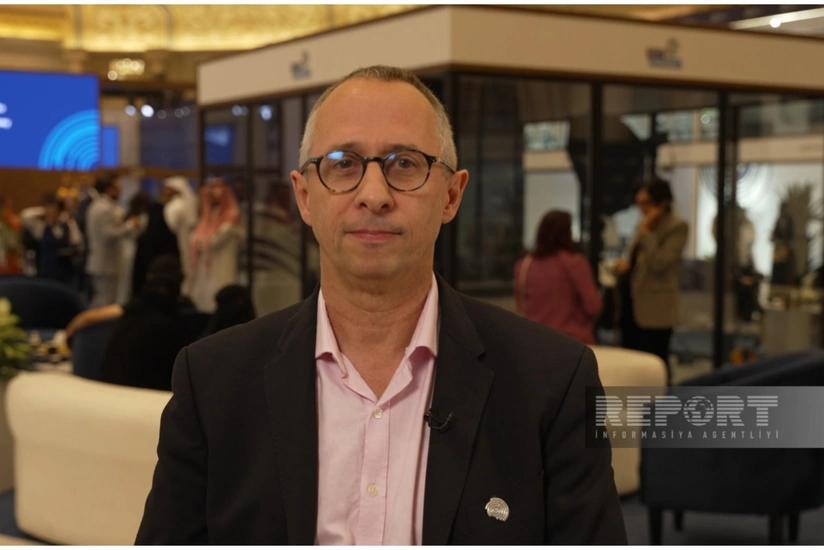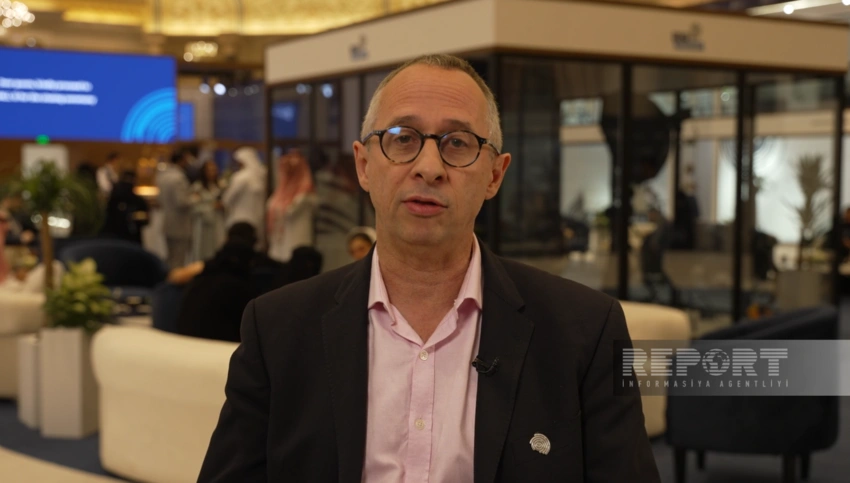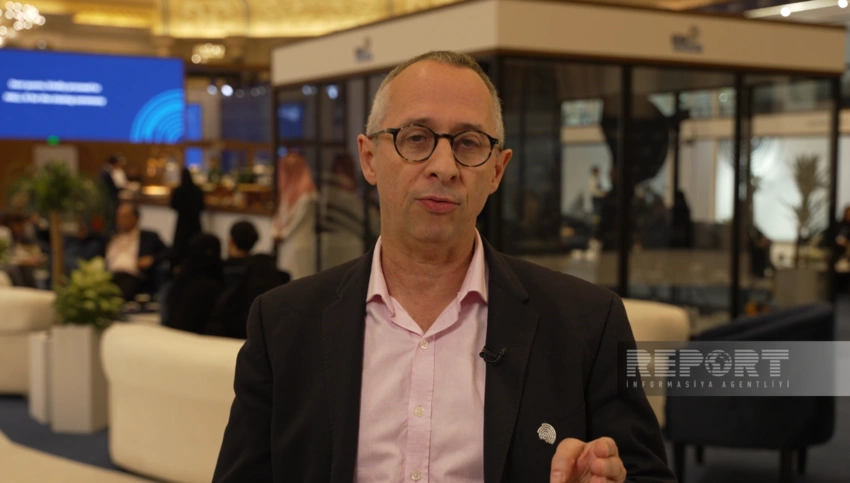ITU: Azerbaijan should take proactive stance in shaping global AI safety standards - INTERVIEW
- 31 October, 2025
- 16:31

Azerbaijan is strengthening its position as a digital bridge between Europe and Asia, focusing on the development of artificial intelligence, cybersecurity, and digital trust. Against this backdrop, the issue of cyber resilience extends far beyond the technical agenda - it becomes part of national and regional security: from data protection and cloud infrastructure to the reliability of digital evidence in courts.
In an interview with Report, Arnaud Taddei, Global Security Strategist at Broadcom, chair of Study Group 17 of the International Telecommunication Union (ITU) - ITU-T SG17, and vice-chair of ITU-T SG17 from the UK, discusses why countries in the region need to act together in the face of global cyber threats, how ITU-T international standards help build trust in the digital environment, and what risks rapidly developing artificial intelligence poses.
Report presents the interview:
- How important is regional cooperation in cybersecurity, especially for countries like Azerbaijan that serve as a digital bridge between Europe and Asia?
- This is one of the key issues. Regional cooperation is, first and foremost, about creating a community united by a common goal. Today, no one on the planet can withstand cyber threats alone. Cybersecurity, cybercrime, and often state-level cyberattacks are global phenomena. However, unfortunately, many countries remain isolated: they lack specialists, resources, and sometimes technological capabilities, including cloud infrastructure and data centers.
All this leads to an obvious conclusion: acting alone, we will be defeated. Only joint efforts give us a chance for sustainability. For Azerbaijan, which connects East and West, this approach is particularly important: as part of regional interaction, the country not only strengthens its own cyber defense but also becomes a link ensuring the security of the entire digital space of the region.
- What role do international organizations and standardization structures, for example, the International Telecommunication Union, play in this process?
- International organizations, such as the ITU, are a kind of framework for digital trust. I lead ITU-T Study Group 17, which deals with security and trust issues, and I can say that standardization is not a bureaucratic formality, but a powerful tool that influences market development and the digital ecosystem as a whole.
The goal of standardization is to create an interconnected, open, and accessible world. This is not only a technological but also an economic mission.

The ITU includes states, the private sector, academic and scientific circles, as well as civil society. About 70% of the organization's budget over 160 years has been formed by member countries, which emphasizes its intergovernmental nature. Universities and companies, by joining, strengthen this system, bringing in expertise and innovation.
The result of our work is the best international practices, recommendations, standards, and specifications that help countries, including Azerbaijan, build their own cybersecurity systems, strengthen resilience to threats, develop competencies, and, most importantly, harmonize national regulations with global standards.
It is precisely this synchronization that allows countries not to catch up, but to participate in the process of shaping the digital future.
- From a cybersecurity perspective, what are the main risks and challenges associated with implementing national artificial intelligence strategies? What recommendations would you give to Azerbaijan in this context?
- This is a very extensive and multi-layered question. First of all, it's important to clarify exactly what kind of artificial intelligence we are talking about. After all, AI is not a new phenomenon. I started working with it 32 years ago when I was writing a study at Subtelecom, and back then, we were talking about a completely different level of technology.
Since then, we have come a long way: from classical machine learning to generative artificial intelligence, and now we are witnessing the birth of a new era - agent AI. Few have heard about it yet, but it is precisely this that opens up both colossal opportunities and new threats. This field is developing at a dizzying pace, and with progress come fundamentally new vectors of vulnerabilities and attacks.

Today, we can talk about three levels - classical AI, generative AI, and agent AI, and each of them carries its own risks for countries like Azerbaijan. For example, agent AI can act autonomously, which significantly expands the tools of malicious actors. Take the phenomenon of prompt injection: we have very few ways to counter this type of attack, which can cause "hallucinations" in models and undermine trust in their results. This is a real and growing threat.
One of the directions that I would recommend to Azerbaijan is to carefully study the results of my work on AI security, presented at the AI for Good event. We have made serious progress there, and the ITU-T SG17 group, which I lead, today plays a leading role in the international standardization of this area.
Let me give an example that, in my opinion, is particularly illustrative. Imagine the field of justice, where digital evidence is increasingly appearing. How can we ensure that they are genuine and not created by artificial intelligence? If we cannot answer this question, there is a risk of undermining trust in the judicial system. Step by step, society may lose faith in justice if the authenticity of evidence becomes unprovable.
Therefore, my advice to Azerbaijan, as a country that is part of the ITU: join our research group. The best experts from around the world work there, and participation in this cooperation will allow Azerbaijan not only to improve its strategy [it covers 2025-2028], but also to take an active position in the formation of global artificial intelligence security standards - an area where there are no final answers yet, but there is a huge need to act together.
